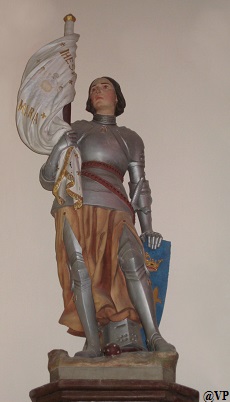Prayer to Saint Jeanne D'Arc
by VP
Posted on Sunday May 30, 2021 at 02:00AM in Prayers

Lord, You wondrously raised up St. Joan, the Virgin, to defend the Faith and her country.
Through her intercession grant that the Church may overcome the snares of her enemies and enjoy unbroken peace.
Amen.
Source: CAPG
